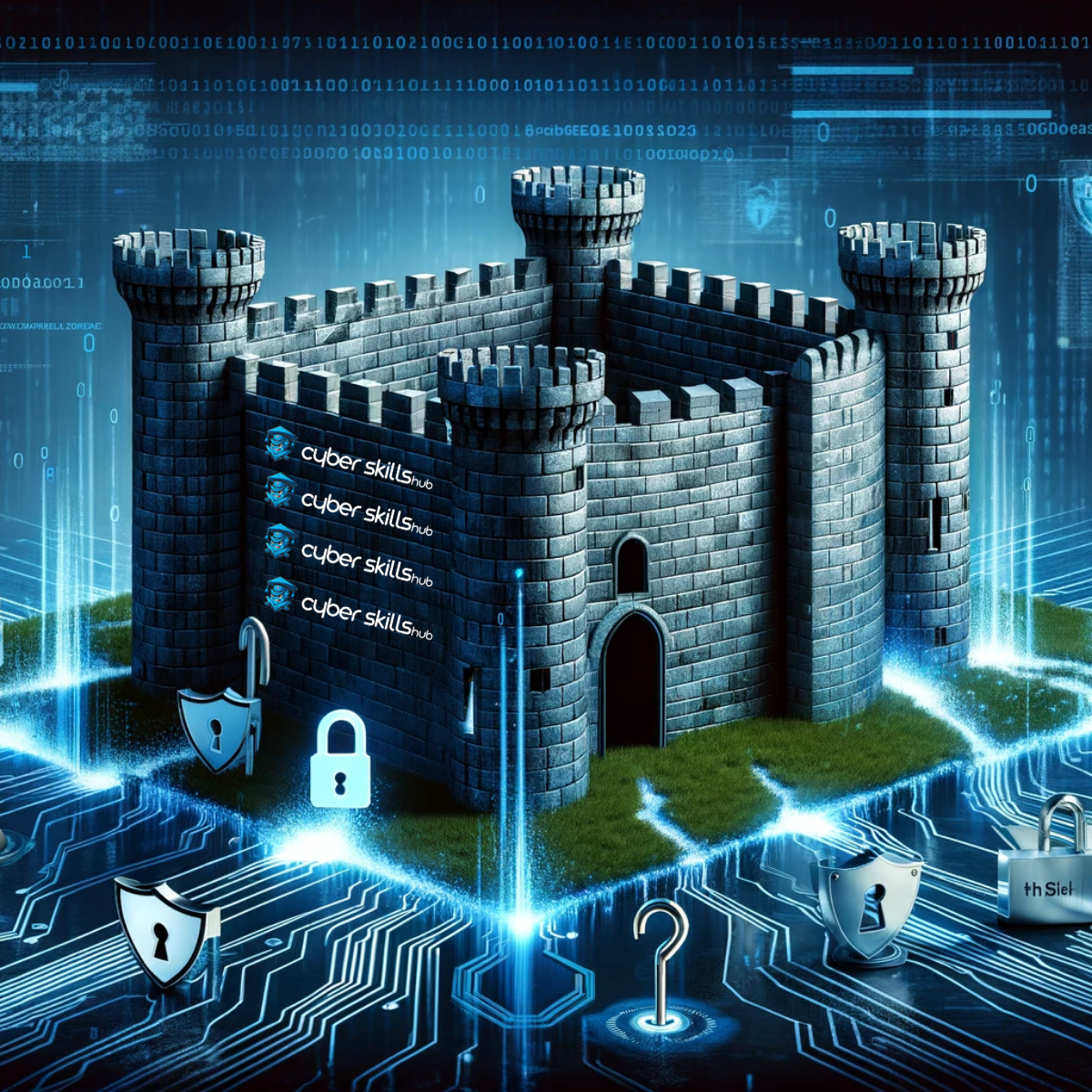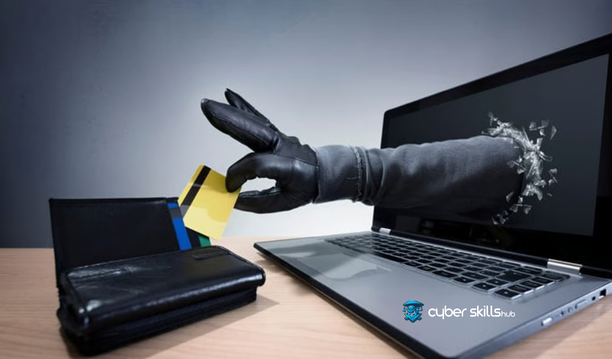Currently Empty: $0.00
Cybercrimes: The Most Common Internet Crimes in Turkey

Cybersecurity is like the strength of the walls of a castle, but what happens when those walls collapse?
Cybercrime has become an inevitable reality of today’s digital world. Criminals, who lurk like shadows in the folds of the internet, target the digital assets of individuals and organizations through different methods. For them, stealing a user’s credentials or exploiting vulnerabilities in a system is as valuable as stealing gold from a safe, and such attacks can lead to huge financial and emotional losses for victims.
Identity Theft and Fraud
Identity theft occurs when personal data is compromised by unauthorized persons and victims suffer losses through bank accounts, credit cards or other financial instruments. Attackers gain access to personal information through social engineering or malicious software and use it for unfair gain. These crimes threaten individuals as well as companies and undermine their security.
Fraud cases in Turkey vary, but ‘phishing’ or ‘phishing’ is one of the most common tactics. In this technique, attackers use fake emails and websites to capture users’ login credentials. Thus, they can quickly gain access to victims’ financial resources and personal data. Increasing the level of awareness and protection methods against this type of crime, which is increasing especially in the digital environment, is critical to minimize these threats.
Theft of Credit Card Information
The theft of credit card information is a type of cybercrime that has increased in parallel with the popularization of online shopping in Turkey. Attackers capture and misuse card information through various techniques.
One of the most common methods of stealing information is ‘skimming’, or card skimming. This method is carried out through hidden readers placed on ATMs or POS devices and can take place without the victims even realizing it.
The losses in credit card fraud are not only financial, but also in the form of damaged trust.
The ways of protection include secure internet shopping, the use of strong passwords and regular monitoring of card transactions. In addition, making transactions through websites with SSL certificates and not clicking on suspicious links are important steps to protect personal information.
Phishing: Information Hunting with Fake Emails
Phishing is a form of cyber-attack carried out through fake emails designed to capture personal information. These attacks are usually carried out by impersonating a trusted source.
- Fake Bank Emails: Victims are asked to share personal and financial information.
- Impersonations of E-Commerce Sites: User information is stolen by redirecting to fake versions of popular shopping sites.
- Fake Campaigns and Surveys: Personal data is requested with the promise of winning money or prizes.
- Redirect Links: Redirects to websites with compromised security and malicious content.
These emails contain sensitive details that are intended to deceive even careful users with their realistic appearance. Users need to be aware of this and carefully scrutinize suspicious emails.
Phishing attacks have become more sophisticated in parallel with technological developments and have taken an important place in cyber security threats. Therefore, it is of great importance that students and individuals have the necessary knowledge and skills in this regard.
Malware Attacks
Malware is one of the most preferred attack methods by cybercriminals. These attack tools are software developed by malicious actors to damage, steal data from, or disable targeted systems. The main types of malware include viruses, trojans, worms, spyware and ransomware. Each has the potential to infiltrate and damage devices through different mechanisms.
Ransomware in particular poses a major threat to users in Turkey. Cybercriminals use encryption algorithms to lock the victim’s files, prevent access and demand a ransom. Users can protect themselves against such attacks with up to date cybersecurity practices and preventative strategies such as regular data backups. Also, at the individual and organizational level, implementing firewalls, antivirus programs and regular security updates are essential steps to counter malware.
Ransomware Blackmail Software
Ransomware is one of the most destructive cyberattacks possible and can affect a wide range of people, from individuals to the IT infrastructure of organizations. This threat allows cybercriminals to pressure their victims with valuable data.
Operating on the basis of encryption, ransomware can render a user’s files incomprehensible. Access to the data becomes impossible without paying the requested ransom.
Malware spread methods include phishing emails, unsecured websites or unprotected network services. As a result of these attacks, victims risk losing their personal and corporate data completely without backups.
The most effective protection methods for users and organizations in Turkey include regular backups, training programs, not opening suspicious email attachments, up to date antivirus software and regular updates to operating systems. Adopting cyber hygiene practices and raising employee awareness minimizes the damage that ransomware can cause. On the other hand, national and international legal regulations and cooperation are constantly working to prevent such attacks.

Trojans and Viruses
Trojans are hidden threats that engage in malicious activities and often masquerade as useful software. These pests infiltrate the system by taking advantage of users’ carelessness.
In the field of cybersecurity, malware, especially Trojan horses and viruses, is a major threat. These malware exploit system vulnerabilities and social engineering techniques to access the user’s device, steal confidential information, use system resources and install other malware. Trojans often come in specialized forms, such as keyloggers, backdoors and banking trojans, and are sophisticated cyber attack tools that can lead to serious security breaches.
Viruses are malicious software that have the ability to spread on their own, and can settle on a user’s computer or server system. They are often distributed through methods such as email attachments, illegal software download sites or contaminated network drives. This malware can degrade system performance, corrupt information and even cause permanent data loss.
Cybersecurity experts in Turkey emphasize proactive defense techniques in the fight against Trojans and viruses. The use of accurate threat intelligence is vital in recognizing and neutralizing malware. Effective antivirus software, regular system updates and user training programs are effective strategies to mitigate the damage that such threats can cause. In particular, strong network firewalls and behavior-based detection systems are essential to prevent and neutralize malware infiltration.
Social Media Abuses
Social media platforms have become attractive targets for cybercriminals as online spaces where users can share their personal information and reach large audiences. They threaten the security of users through activities such as creating fake accounts, identity theft and fraud. In particular, young and inexperienced internet users are more vulnerable to such abuses and threats.
These abuses, which lead to data breaches and privacy issues, can also cause individual and corporate reputational damage as well as financial losses. For this reason, the care users take on social media and the security measures they take are of great importance.
Fake Profile and Fraud
Fake profiles are one of the most common methods used by cybercriminals and are used as a key tool in fraud operations. This method aims to gain the trust of innocent people and profit financially from them.
- Identity Theft: Identity information of real people is compromised through fake profiles.
- Romantic Fraud: People’s financial assets are targeted by establishing emotional relationships.
- Phishing: Information is stolen through fake links or emails that appear to be legitimate.
- Job Fraud: Fake job offers and requests for personal and financial information.
- Online Shopping Scams: Scams involving the sale of products that are not available.
Victims often suffer material and moral damage as a result of relationships with fake profiles.
Such fraudulent activity not only threatens the financial security of individuals, but also increases distrust of safe internet use. Therefore, always questioning suspicious behavior and offers is a critical cybersecurity skill.
Cyberbullying: Threats and Harassment
Cyberbullying encompasses threats, harassment and humiliation against an individual in online environments. Such attacks are carried out with the aim of negatively affecting the victim’s psychology and can have long-term effects on the social environment of those harmed.
These attacks can happen anonymously, making it difficult to catch the perpetrator.
Cyberbullying includes a wide range of behaviors such as threatening messages, hurtful comments or disclosure of private information. Sometimes such actions can carry concrete criminal elements and lead to legal sanctions. The feeling of individual vulnerability can lead to withdrawal of the victim, social isolation and even serious psychological consequences such as traumatic stress.
Therefore, cyberbullying is not only a problem of online interaction, but can also jeopardize an individual’s social relationships and emotional well-being in real life. In addition to educational institutions, families and legal authorities, it is a societal responsibility for individuals exposed to cyberbullying to learn strategies to cope with the situation. Precautions and awareness-raising efforts play a critical role in reducing the effects of cyberbullying.

Online Piracy
Online piracy, illegal content sharing and copyright infringement is a major problem in Turkey. These acts are usually carried out and diversified through different internet platforms.
Legally, such activities seriously infringe the financial and moral rights of authors and may constitute a criminal offense under the Law on Intellectual and Artistic Works. Piracy has a negative impact on the development of the creative industries, not only for music and movies, but also for software, games and books.
Individuals who provide and distribute pirated content over the Internet often aim to remain anonymous through technical means. This makes it difficult to identify and prosecute them.
Copyright Violations
Copyright infringements are activities that violate the legal regulations that protect the rights of authors, artists and software developers to their works. These violations include the unauthorized use, reproduction and distribution of works, including providing access to them illegally.
Works of art and literature can now be easily shared on online platforms.
The anonymity offered by the Internet makes it difficult to trace infringements. For copyright owners, this is a factor that makes the protection of their works more difficult.
Artists and creators are struggling to make a profit from their work. This puts small-scale creators in serious economic difficulties.
Internet service providers (ISPs) and governments have measures in place to prevent infringement. However, there are serious problems in protecting copyright internationally, as the borderless nature of the internet allows infringement to spread internationally.
Effective cooperation is essential to detect and block illegal content. In countries like Turkey, strict legal frameworks and the use of technological tools to combat copyright infringement are important elements of protecting the arts and knowledge ecosystem.
Illegal Content Distribution
Illegal content distribution can be defined as the unauthorized use and sharing of copyrighted works. This crime covers many different types of works such as movies, music, software, games and books. Criminals often disseminate these works over the internet to gain unfair profits and cause financial damage to copyright holders.
The ability to circumvent copy protection methods facilitates the commission of this crime. Especially with the use of ‘crack’ software, protected content can be unlocked.
Torrent sites, P2P (peer-to-peer) networks and streaming services operating on the Internet are among the most common methods of illegal distribution. Through these platforms, users can commit copyright infringement with the help of pirated content providers.
The distribution of illegal content is not only copyright infringement, but can also become a vehicle for the spread of computer viruses. Illegal downloads can expose users’ devices to viruses and malware, compromising their personal data security.
This brings moral and legal responsibilities as well as security risks. Users often tend to ignore whether content is legal or not, which can lead them to unwittingly commit crimes and face serious criminal penalties.
In our country, effective fight against such crimes and the implementation of deterrent sanctions are of vital importance in ensuring cyber security. In this context, making the necessary legal arrangements and increasing the capacity of anti-cybercrime units are the main steps towards solving the problem.
Frequently Asked Questions on Cybercrime
What is cybercrime and what are the most common types in Turkey?
Cybercrime is illegal activities carried out over the internet. The most common cybercrimes in Turkey include identity theft, phishing, ransomware and social media fraud.
What are phishing attacks and how to avoid them?
Phishing is a type of cyber-attack aimed at obtaining personal information through fake emails. Ways to protect yourself include not opening suspicious emails, not clicking on untrusted links and keeping your security software up to date.
What is ransomware and how can we protect ourselves?
Ransomware is malicious software that encrypts personal or corporate data and demands a ransom. To protect yourself, it is important to make regular backups, use security software and be careful with email attachments.
What measures should be taken to ensure safety on social media?
Effective ways to ensure security on social media include not following suspicious accounts, not sharing personal information and enabling security features such as two-factor authentication.
What is copyright infringement and how does it spread online?
Copyright infringement is the use, reproduction and distribution of works without the permission of the authors. On the internet, these infringements are often spread through illegal download sites and P2P networks.
What are the most effective ways to combat online piracy?
Effective methods of combating illegal content include strong legislation, the use of technological tools and international cooperation. It is also important that users refrain from downloading illegal content.
What are the current threats in cyber security and how to stay up to date against these threats?
Cybersecurity threats are constantly evolving and current threats include sophisticated phishing attacks, malware campaigns and attacks via IoT devices. To stay up to date, it is useful to follow cybersecurity news, attend trainings and keep security software up to date.







